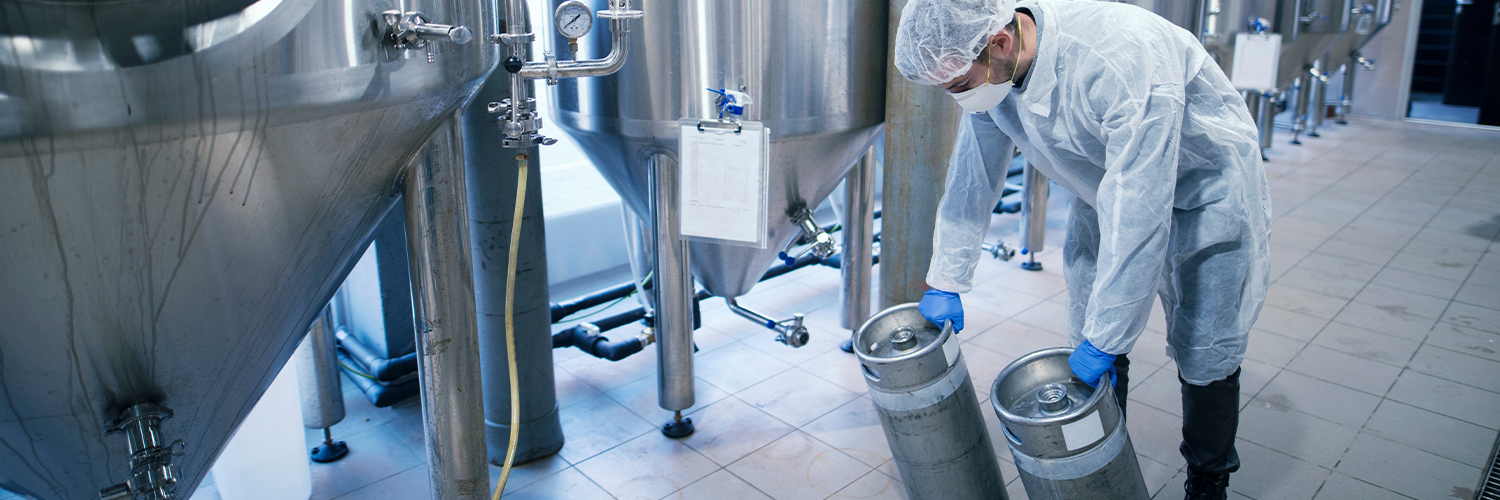Introduction
Chemical storage and distribution demand meticulous attention to safety and compliance. Among the many components crucial to this process, ball valves stand out as vital guardians of containment and control. In this blog, we’ll delve into the significance of ball valves in chemical handling, exploring their role in ensuring safety and regulatory compliance.
Understanding Ball Valves
Ball valves are mechanical devices used to regulate the flow of fluids in pipelines. Their design includes a hollow, perforated, and pivoting ball that controls the flow through it. By rotating the ball a quarter turn (90 degrees) with the valve handle, one can either allow or block the flow entirely. This simple yet effective mechanism makes ball valves indispensable in various industries, including chemical processing.
Safety Measures with Ball Valves
Corrosion Resistance: Chemicals often corrode materials they come into contact with. Ball valves crafted from corrosion-resistant materials like stainless steel or certain plastics ensure longevity and reliability, mitigating the risk of leaks or failures due to corrosion.
Leakage Prevention: Proper sealing is imperative in chemical handling to prevent leaks that could lead to environmental contamination or pose health hazards. Ball valves with tight seals and robust construction help maintain containment integrity, reducing the risk of leaks.
Emergency Shut-off: In case of spills, leaks, or other emergencies, swift action is essential to minimize damage and hazards. Ball valves enable quick shut-off, allowing operators to isolate problematic sections of the pipeline rapidly, preventing further escalation of the situation.
Regular Maintenance: Like any mechanical component, ball valves require routine inspection and maintenance to ensure optimal performance. Periodic checks for wear, corrosion, or malfunction can pre-emptively address issues before they escalate into safety concerns.
Compliance with Regulations
Chemical handling operations are subject to stringent regulations aimed at safeguarding workers, communities, and the environment. Ball valves play a pivotal role in compliance with these regulations by offering:
Material Compatibility: Regulations often stipulate the use of specific materials suitable for handling particular chemicals. Ball valves manufactured from compliant materials ensure adherence to these regulations, minimizing the risk of chemical reactions or contamination.
Pressure Ratings: Pressure containment is crucial in chemical processing to prevent accidents and ensure operational safety. Ball valves designed to withstand specified pressure ratings help facilities comply with regulatory standards regarding pressure containment.
Leakage Standards: Regulatory bodies set stringent limits on permissible leakage rates for equipment used in chemical processing. High-quality ball valves with reliable sealing mechanisms help facilities meet these standards, ensuring compliance with leakage regulations.
FAQs
Q1. Can ball valves handle corrosive chemicals?
A: Yes, ball valves crafted from corrosion-resistant materials such as stainless steel or certain plastics are capable of safely handling corrosive chemicals.
Q2. Are there specific regulations governing the use of ball valves in chemical processing?
A: While regulations may vary by jurisdiction, there are often industry standards and guidelines specifying the materials, pressure ratings, and leakage standards for ball valves used in chemical processing.
Q3. How frequently should ball valves be inspected and maintained?
A: It is recommended to conduct regular inspections and maintenance of ball valves according to the manufacturer’s guidelines and industry best practices. Depending on factors such as operating conditions and frequency of use, inspections may be conducted annually or more frequently if necessary.
Conclusion
Ball valves serve as critical components in ensuring the safety and regulatory compliance of chemical storage and distribution systems. By offering corrosion resistance, leak prevention, emergency shut-off capabilities, and compliance with regulations, ball valves play a vital role in safeguarding personnel, facilities, and the environment against the risks associated with chemical handling operations. Regular inspection, maintenance, and adherence to regulatory standards are essential practices in maximizing the effectiveness and reliability of ball valves in chemical processing applications.

